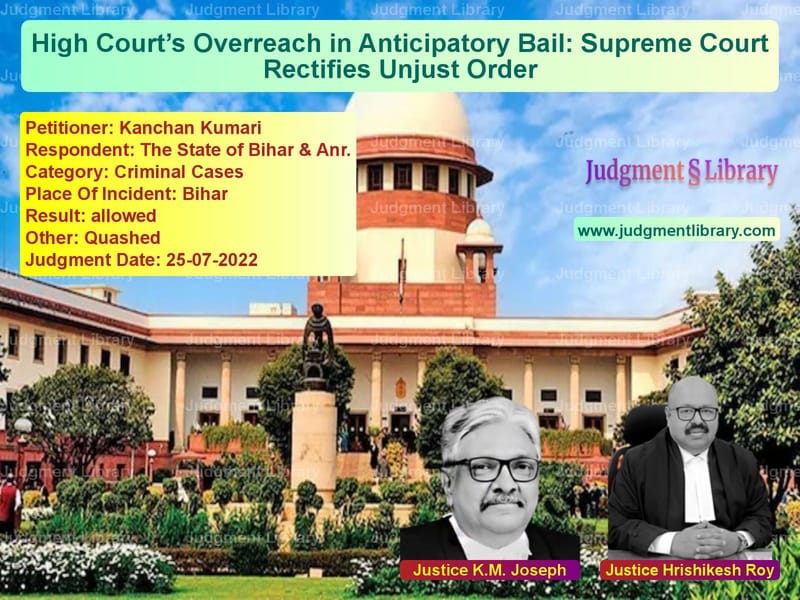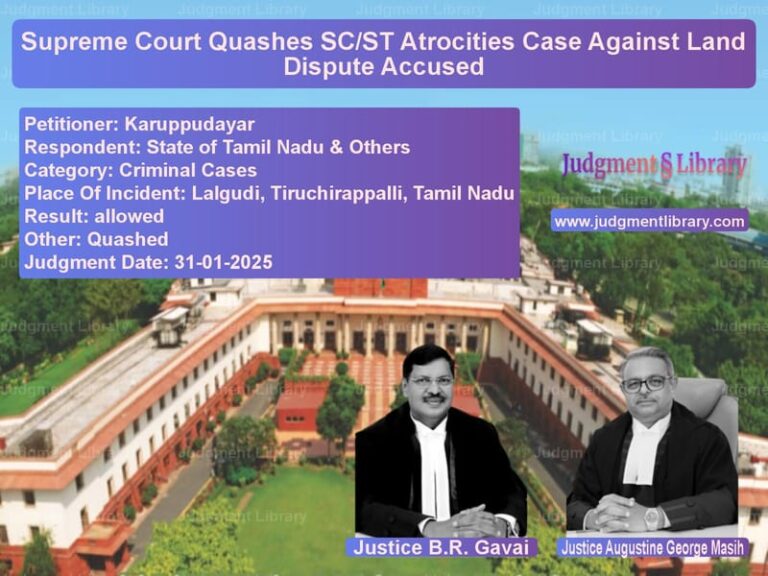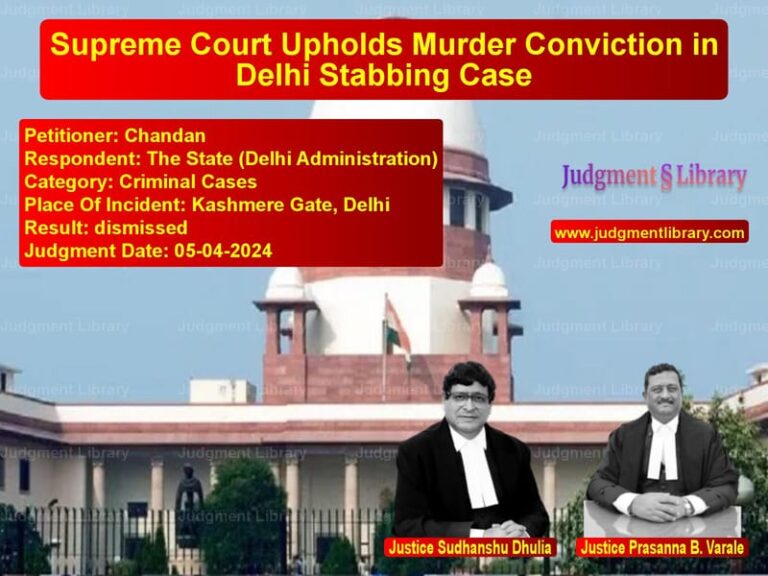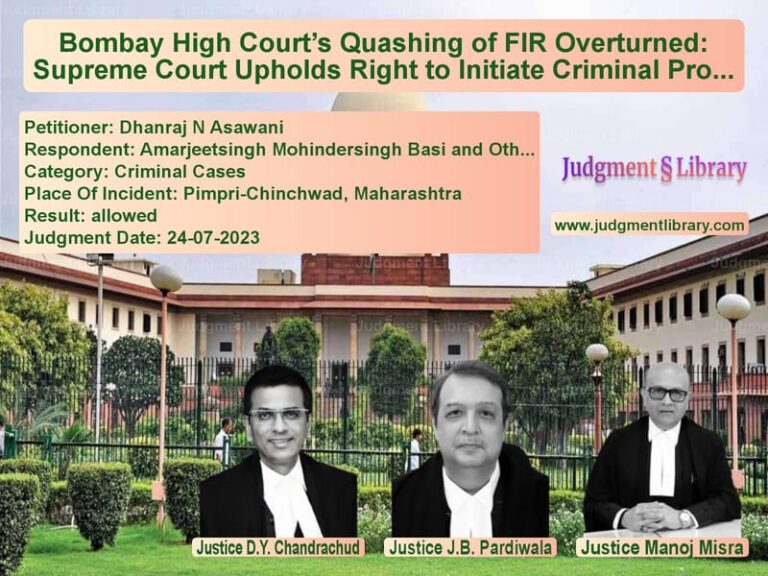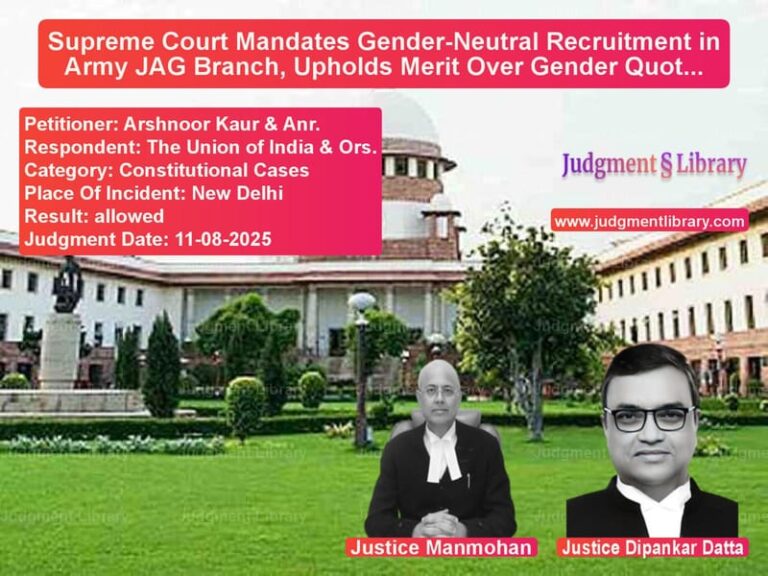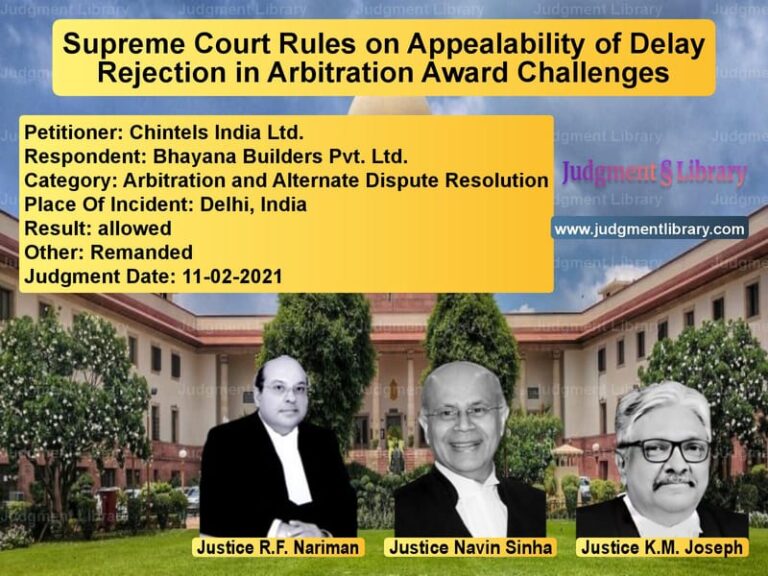High Court’s Overreach in Anticipatory Bail: Supreme Court Rectifies Unjust Order
The case of Kanchan Kumari vs. The State of Bihar & Anr. highlights a critical issue of judicial overreach in anticipatory bail proceedings. The Supreme Court was called upon to decide whether a High Court could issue adverse directions against a third party who was not even a party to the proceedings. The case serves as a precedent for ensuring that courts do not exceed their jurisdiction while dealing with bail matters.
Background of the Case
The case originated from a criminal complaint in Bihar, where the second respondent was accused of committing offenses under Sections 406 (criminal breach of trust), 420 (cheating), 467 (forgery of valuable security), and 468 (forgery for purpose of cheating) of the Indian Penal Code (IPC). Seeking protection from arrest, the accused filed an anticipatory bail application under Section 438 of the Code of Criminal Procedure (CrPC).
The Patna High Court, while granting anticipatory bail, went a step further and issued a directive against Kanchan Kumari, who was not even a party to the case. The High Court directed:
“Senior Superintendent of Post Office, Bankipore is directed to cancel the license/authorization of agent granted to Kanchan Kumari and for being an agent of the Post Office, she should not be allowed to work as an agent in Bihar or anywhere else.”
Read also: https://judgmentlibrary.com/supreme-court-upholds-conviction-in-andhra-pradesh-murder-case/
This directive effectively blacklisted Kanchan Kumari from her profession, prompting her to challenge the order before the Supreme Court.
Petitioner’s Arguments
Kanchan Kumari, through her legal counsel, contended that:
- She was not a party to the anticipatory bail proceedings.
- The High Court passed an order that adversely affected her livelihood without giving her an opportunity to be heard.
- The directive amounted to blacklisting her for life, which was beyond the jurisdiction of the High Court in a bail matter.
- The principles of natural justice were violated, as she was neither issued a show-cause notice nor given a chance to present her side.
- The High Court had no authority to issue such directions when the matter before it was limited to the anticipatory bail plea of another person.
The petitioner also cited the case of Sumit Mehta vs. State of NCT of Delhi (2013) 15 SCC 570, where the Supreme Court had held that conditions imposed in an anticipatory bail order must be appropriate, reasonable, and relevant to the issue before the court.
Government’s Arguments
The State of Bihar, represented by its counsel, conceded that the High Court had exceeded its jurisdiction. The government acknowledged that:
- A court dealing with an application under Section 438 CrPC must confine itself to the issue of whether the accused has made out a case for anticipatory bail.
- The High Court erred by issuing a directive against a third party in an unrelated matter.
- The adverse direction had serious civil consequences for the petitioner, affecting her fundamental right to livelihood.
Supreme Court’s Observations
The Supreme Court, comprising Justices K.M. Joseph and Hrishikesh Roy, strongly criticized the High Court’s approach. The Court observed:
“We are convinced that the High Court has gone beyond what was needed for the disposal of the application under Section 438 Cr.P.C. The adverse impact of the direction goes to the very livelihood of the appellant. It has civil consequences for the appellant. Such a peremptory direction, without even issuing any notice to the appellant, was clearly unjustified.”
The Court further noted that:
- The issue before the High Court was limited to anticipatory bail, and there was no reason for it to pass a directive against a third party.
- The directive amounted to judicial overreach, as it was passed without any supporting evidence or due process.
- Courts must ensure that their orders remain within the scope of the lis (legal dispute) before them.
- The right to livelihood is a fundamental right under Article 21 of the Constitution, and such an order violated basic principles of natural justice.
Supreme Court’s Final Ruling
The Supreme Court allowed the appeal and quashed the adverse direction against Kanchan Kumari. The judgment concluded:
“The impugned order shall stand modified by vacating the direction which we have extracted hereinabove.”
The Court reaffirmed that conditions imposed while granting bail must be:
- Relevant to the bail application.
- Justified by the facts of the case.
- Consistent with principles of natural justice.
Key Takeaways
- Courts must limit bail orders to bail matters: Any conditions imposed must relate to the issue of granting or rejecting bail.
- Judicial overreach can have severe consequences: Orders affecting third parties without due process are unconstitutional.
- Natural justice is paramount: No adverse order can be passed against an individual without giving them an opportunity to be heard.
- Fundamental rights must be protected: The right to livelihood cannot be arbitrarily taken away.
Conclusion
The judgment in Kanchan Kumari vs. The State of Bihar & Anr. sets a strong precedent against judicial overreach in bail matters. It ensures that courts do not impose extraneous conditions that violate natural justice principles. The ruling upholds the fundamental rights of individuals and reinforces that conditions in bail matters must be legally sound, relevant, and proportionate to the case at hand.
Petitioner Name: Kanchan Kumari.Respondent Name: The State of Bihar & Anr..Judgment By: Justice K.M. Joseph, Justice Hrishikesh Roy.Place Of Incident: Bihar.Judgment Date: 25-07-2022.
Don’t miss out on the full details! Download the complete judgment in PDF format below and gain valuable insights instantly!
Download Judgment: kanchan-kumari-vs-the-state-of-bihar-&-supreme-court-of-india-judgment-dated-25-07-2022.pdf
Directly Download Judgment: Directly download this Judgment
See all petitions in Bail and Anticipatory Bail
See all petitions in Legal Malpractice
See all petitions in Other Cases
See all petitions in Judgment by K.M. Joseph
See all petitions in Judgment by Hrishikesh Roy
See all petitions in allowed
See all petitions in Quashed
See all petitions in supreme court of India judgments July 2022
See all petitions in 2022 judgments
See all posts in Criminal Cases Category
See all allowed petitions in Criminal Cases Category
See all Dismissed petitions in Criminal Cases Category
See all partially allowed petitions in Criminal Cases Category

